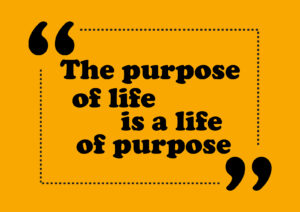If You Want to Create a Better World, Start By Creating Better Workplaces
If you consider the workplace as a definable “unit” as discrete, measurable communities within our society, then I would argue that the workplace is the most important building block when it comes to creating a better world.
Our workplaces don’t just impact the economic health of our communities and entire nations, they also have an enormous impact on the environment, how cities evolve and are designed, how public transportation gets developed, on innumerable charities, on a myriad of societal issues from crime to homelessness, and on the mental, physical, and spiritual well-being of every person on the planet.
Recognizing this, I passionately believe that if we want to create a better world and if we want to leave behind a better planet for future generations, we must commit to building better workplaces.
Life is too short to work in a soul-sucking, fun-sucking workplace.
Life really is short.
OK, so maybe not compared to a fruit fly. But we all know that when we are touched by the death of a loved one, or as we face down our own mortality as we age, our priorities can shift as we develop new perspectives and learn to appreciate what truly matters in our lives.
And as we reassess our priorities, how can we not consider the enormous impact work has on our lives? After all, it does tend to be a wee bit of a time-sucker. In fact, work is the single biggest use of our waking hours. A typical Canadian (where I live) works 80,000 – 90,000 hours over the course of their life.
Work affects our family lives and marriages, our social networks, friendships, personal development, and growth as human beings. Work can offer us a profound sense of belonging and connection.
Consider what research reveals about the detrimental health impacts of loneliness. Researchers Hotl-Linstad, Smith, and Layton found that living with air pollution increases your odds of dying early by 5%; living with obesity by 20%; excessive drinking by 30%.
But living with loneliness?
The researchers found that loneliness increases our odds of dying by 45% and that loneliness is associated with a greater risk of cardiovascular disease, dementia, depression, and anxiety.
Now I’m not suggesting work is the only factor here. There’s a myriad of factors at play, particularly post-retirement. But in so far that the workplace provides many people with a critical opportunity to connect, socialize, and form friendships, we can’t discount the enormous impact the workplace has when it comes to creating a sense of community and social support.
Work also provides us with a sense of purpose and meaning. Survey after survey demonstrates that people are hungry for a sense of meaning in their lives and that employees are longing for a greater sense of purpose from their work. And surveys show that many employees, in fact, are willing to take lower paying jobs in exchange for work that provides them with a greater sense of meaning.
Work has an enormous impact on our mental and physical health.
And we haven’t even touched on how workplaces impact our mental and physical health yet!
There is no doubt that workplaces have an enormous, over-sized role when it comes to its impact on our stress, mental, and physical health. The book Dying for a Paycheck by Stanford business professor Jeffrey Pfeffer lays out an incredibly thorough and depressing argument that not only is work a primary source of most of the stress in our life, it’s also a primary cause of illness and even death (the title of his book should have been the first clue). Pfeffer writes that work environments in the US may be responsible for 120 thousand excess deaths a year and that the workplace is the primary driver of the health crisis facing the United States.
The great news is…work has an enormous impact on our world!
Here’s the great news though: Work has an enormous impact on every aspect of our lives!
Which means we have the power – through our jobs, teams, workplaces, and entire organizations – to truly create a better world. One workplace at a time.
It begins with awareness.
It coalesces and builds into something meaningful when we talk openly about the power of our workplaces to make a difference in the lives around us and in our communities.
We need to speak openly about what values matter to us. We must ask challenging questions about our workplaces and respectfully demand that our workplaces model the values we want to see in the world.
It’s about putting people first.
Given the enormous impact work has on every aspect of our lives, I think we owe to our employees and their families, to our customers, to our partners and suppliers, and to our communities to create as inspiring a workplace as we possibly can.
Because life really is too short to work in a soul-sucking workplace.
What Do You Think?
So, what do you think? Is this pie-in-the-sky thinking? Or do you think we can and must re-imagine our workplaces for a better world?
What is your workplace doing to make a difference? Do you think it’s even possible to shift your workplace culture towards making a more substantive and positive contribution to the world?
I welcome your thoughts, questions, and ideas! And if there’s anything I can do to work with you to help you e-imagine a more inspiring workplace, let’s talk!
 Michael Kerr is a Canadian Hall of Fame speaker who is on a mission to create a better world – one workplace at a time. Michael is the author of 8 books, including, “Hire, Inspire and Fuel Their Fire,” “The Humor Advantage,” and “The Jerk-Free Workplace: How You Can Take the Lead to Create a Happier, More Inspiring Workplace.”
Michael Kerr is a Canadian Hall of Fame speaker who is on a mission to create a better world – one workplace at a time. Michael is the author of 8 books, including, “Hire, Inspire and Fuel Their Fire,” “The Humor Advantage,” and “The Jerk-Free Workplace: How You Can Take the Lead to Create a Happier, More Inspiring Workplace.”






